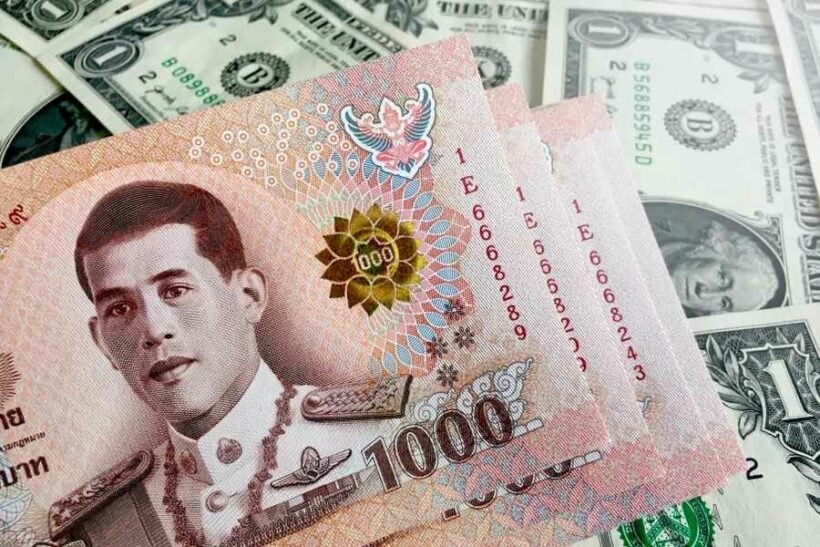Currency Exchange in Thailand: A Comprehensive Guide for Travelers and Exp

Strong 8k brings an ultra-HD IPTV experience to your living room and your pocket.
Currency exchange in Thailand is a critical aspect for travelers, expatriates, and businesses engaging with the country’s vibrant economy. Inspired by services like moneyshopphuket.com, exchanging foreign currencies like US dollars, euros, or pounds into Thai baht (THB) impacts budgets, investments, and transaction efficiency. Understanding where, how, and when to exchange money, along with the factors influencing rates, ensures optimal financial outcomes in Thailand’s tourism-driven market.
Importance of Currency Exchange for Visitors
Currency exchange in Thailand directly affects the purchasing power of international visitors, shaping budgets for accommodation, dining, and activities. The Thai baht, Thailand’s official currency, is essential for transactions, especially at local markets and small vendors where cash dominates. A favorable exchange rate maximizes value, while poor rates or high fees can erode funds, making informed exchange decisions vital for travelers.
Overview of the Thai Baht
The Thai baht, symbolized as THB and subdivided into 100 satang, has been Thailand’s currency since the early 20th century, replacing the tical. Managed by the Bank of Thailand, the baht’s value reflects the country’s economic health, driven by tourism, exports, and gold markets. As of May 20, 2025, the baht’s exchange rate against major currencies like the US dollar (33.17 THB per USD) influences currency exchange in Thailand.
Popular Currencies for Exchange
Currency exchange in Thailand commonly involves major currencies like the US dollar (USD), euro (EUR), British pound (GBP), Australian dollar (AUD), and Japanese yen (JPY). These currencies are widely accepted at exchange shops, banks, and ATMs, with USD and EUR being the most traded due to their global reserve status. Local exchange services offer competitive rates for these currencies, catering to Thailand’s diverse tourist base.
Where to Exchange Currency in Thailand
Currency exchange in Thailand is available at banks, airport kiosks, local money changers, and ATMs. Local exchange shops, particularly in tourist hubs like Phuket, Bangkok, and Chiang Mai, often provide better rates than airports, which charge higher spreads. Banks offer reliability but may require documentation, while ATMs provide convenience but include fees, typically 150-220 THB per withdrawal, plus bank conversion charges.
Exchange Rates and Market Trends
Exchange rates for currency exchange in Thailand fluctuate daily, driven by global economic factors. As of May 20, 2025, the USD/THB rate is approximately 33.17, with recent volatility between 32.998 and 33.501 THB per USD. Posts on X highlight a stronger US dollar pressuring the baht, with forecasts suggesting a potential drop to 33.80 THB. Monitoring mid-market rates via platforms like Wise ensures fair exchanges.
Factors Influencing Exchange Rates
Currency exchange in Thailand is influenced by US monetary policies, Thailand’s trade balance, and global market sentiment. Recent US-China trade agreements have strengthened the dollar, impacting baht rates, while Thailand’s Q1 2025 GDP growth of 3.1% has occasionally supported the baht. Geopolitical events and tourism revenue also play roles, creating volatility that requires careful rate monitoring for optimal conversions.
Best Practices for Currency Exchange
To optimize currency exchange in Thailand, compare rates across multiple providers, avoiding airports or hotels with inflated rates. Exchanging larger amounts reduces transaction fees, and using cash for small vendors avoids card surcharges. Checking mid-market rates via apps like Xe ensures fair deals, while declining dynamic currency conversion at ATMs prevents hidden markups, maximizing baht received.
Role of Local Money Changers
Local money changers are pivotal for currency exchange in Thailand, offering competitive rates and quick service in tourist areas like Phuket and Pattaya. Unlike banks, they require minimal paperwork, making them ideal for travelers. Licensed changers display real-time rates aligned with mid-market values, ensuring transparency. Choosing reputable operators avoids scams and guarantees fair exchanges for foreign currencies.
Using ATMs for Currency Exchange
ATMs are a convenient option for currency exchange in Thailand, allowing direct withdrawals in baht from foreign bank accounts. However, users face ATM fees (150-220 THB) and potential foreign transaction fees from their home bank. Selecting the local currency (THB) at ATMs avoids poor conversion rates. Partner banks like Citibank may offer lower fees, enhancing cost efficiency for travelers.
Currency Exchange at Airports vs. Local Shops
Airport kiosks provide immediate currency exchange in Thailand but often charge higher rates and fees, reducing the baht received. Local exchange shops, particularly in city centers, offer rates closer to mid-market values, with lower or no fees. Travelers should exchange only small amounts at airports for immediate needs and seek local changers for larger transactions to maximize value.
Digital Tools for Tracking Exchange Rates
Digital platforms like Wise, Xe, and Bloomberg provide real-time rates for currency exchange in Thailand, offering historical charts and rate alerts. These tools track fluctuations, such as the recent 1.032% weekly increase in USD/THB, helping users plan conversions strategically. Mobile apps offer convenience for travelers, while APIs like Xe’s support businesses with automated rate feeds for bulk exchanges.
Safety Tips for Cash Transactions
Carrying cash for currency exchange in Thailand requires caution. Use licensed money changers and avoid street vendors offering unrealistic rates. Store cash securely in money belts and exchange only immediate needs to minimize risks. While digital payments are growing, cash remains essential for small vendors and rural areas, balancing convenience with safety during exchanges.
Currency Exchange for Expatriates
Expatriates rely on currency exchange in Thailand for living expenses, rent, and remittances. A favorable rate, like the recent USD/THB high of 34.895, boosts income in baht, while a weaker home currency strains budgets. Regular rate monitoring and using local exchange shops with competitive rates help expats manage costs effectively, especially for long-term stays.
Impact on Travelers’ Budgets
Currency exchange in Thailand directly impacts travelers’ budgets, with a stronger home currency enhancing purchasing power for accommodation, dining, and tours. At 33.17 THB per USD, US travelers benefit from recent dollar strength. Strategic exchanges at local shops and rate tracking via apps like Wise ensure travelers maximize their funds in Thailand’s tourism-driven economy.
Currency Exchange for Small Businesses
Small businesses in Thailand, such as tour operators and retailers, depend on currency exchange in Thailand for pricing and profitability. A stronger foreign currency benefits businesses serving tourists, increasing baht revenue. Conversely, a weaker baht raises import costs. Bulk exchanges at favorable rates and rate monitoring help businesses maintain financial stability in a volatile market.
Avoiding Common Exchange Pitfalls
Common pitfalls in currency exchange in Thailand include accepting airport kiosk rates with high markups or using dynamic currency conversion at ATMs, which inflates costs. Exchanging large sums at unofficial vendors risks fraud. Checking mid-market rates beforehand and using licensed money changers ensure fair deals, maximizing baht received for foreign currencies.
Regulatory Framework for Currency Exchange
Currency exchange in Thailand is regulated by the Bank of Thailand, ensuring licensed operators adhere to fair practices. Money changers must display rates and fees transparently, and banks require identity verification for large transactions. Travelers should use authorized providers to comply with regulations and avoid scams, ensuring safe and legal exchanges.
Future Outlook for Currency Exchange Rates
The usd to thai baht rate, a key component of currency exchange in Thailand, is expected to remain volatile, with forecasts suggesting a range of 32.67-33.67 THB per USD through May 2025. Thailand’s tourism recovery and export growth may strengthen the baht long-term, but short-term dollar strength could persist. Monitoring trends via platforms like 30rates.com aids strategic exchange planning.
Conclusion
Currency exchange in Thailand is a pivotal consideration for travelers, expatriates, and businesses, shaping financial outcomes in a dynamic economy. By leveraging local money changers, monitoring real-time rates, and avoiding common pitfalls, individuals can optimize their conversions. Staying informed about economic trends and using digital tools ensures smarter, cost-effective decisions, maximizing the value of foreign currencies in Thailand.
Note: IndiBlogHub features both user-submitted and editorial content. We do not verify third-party contributions. Read our Disclaimer and Privacy Policyfor details.







